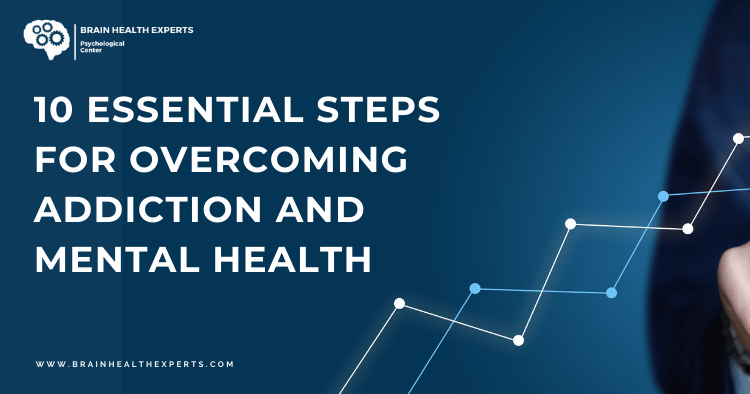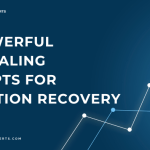Table of Contents
- Understanding Addiction and Mental Health
- Recognizing the Signs
- Seeking Professional Help
- Building a Support Network
- Setting Realistic Goals
- Adopting Healthy Coping Mechanisms
- Practicing Mindfulness and Meditation
- Creating a Structured Routine
- Staying Committed to Recovery
- Celebrating Milestones and Progress
Understanding Addiction and Mental Health
Addiction is a complex condition that affects individuals both physically and psychologically. It can involve substances, like alcohol and drugs, or behaviors, such as gambling or gaming. Mental health disorders, including anxiety and depression, often coexist with addiction, creating a dual challenge that requires a comprehensive approach. Understanding the intricate relationship between addiction and mental health is crucial for effective recovery. According to the National Institute on Drug Abuse (NIDA), nearly half of individuals who experience a substance use disorder also suffer from a mental illness.
“Addiction is not just a matter of willpower; it requires a thorough understanding of its underlying causes.”
Recognizing the Signs
The first step toward overcoming addiction and mental health issues is recognizing the signs. Symptoms can manifest in various ways:
| Addiction Signs | Mental Health Signs |
|---|---|
| Increased tolerance | Persistent sadness |
| Withdrawal symptoms | Anxiety or panic attacks |
| Neglecting responsibilities | Changes in sleep patterns |
| Isolation from loved ones | Difficulty concentrating |
If you or someone you know is experiencing these signs, it’s crucial to seek help. Awareness is the first step to change.
“Recognizing the signs is the first step toward change; it opens the door to seeking help.”
Seeking Professional Help
Overcoming addiction and mental health challenges is often beyond what one can handle alone. Professional help can take many forms, including therapy, counseling, or medication. Cognitive Behavioral Therapy (CBT) is particularly effective for treating both addiction and mental health issues, as highlighted in the article 10 Effective CBT Techniques for Overcoming Anxiety Today. The Substance Abuse and Mental Health Services Administration (SAMHSA) offers resources to find local treatment options.
FAQ: How do I find a therapist?
Look for licensed professionals with experience in addiction and mental health. Websites like Psychology Today allow you to search for therapists by specialty and location.
“Finding the right therapist is crucial; it’s about finding someone who understands your unique journey.”
Building a Support Network
Having a supportive environment can significantly impact recovery. This network can include family, friends, support groups, and professionals. Programs like Alcoholics Anonymous (AA) or Narcotics Anonymous (NA) provide community and understanding. Sharing experiences with others who face similar struggles can foster a sense of belonging and accountability. You can explore 10 Powerful Techniques to Cultivate a Positive Mindset to enhance your support network’s effectiveness.
“A strong support network can be the anchor that keeps you grounded during turbulent times.”
Setting Realistic Goals
Recovery is a journey, not a sprint. Setting realistic, achievable goals is essential for maintaining motivation. Start with small, specific targets, such as attending one support meeting per week or practicing mindfulness for ten minutes daily. Celebrate each achievement, no matter how minor, as progress is still progress. For more on goal setting, see 10 Key Strategies for Effective Goal Setting Success.
“Each small goal achieved is a step towards a larger victory; celebrate your journey.”
Adopting Healthy Coping Mechanisms
Replacing harmful habits with healthier alternatives is a vital part of recovery. Consider these coping strategies:
- Exercise: Physical activity releases endorphins, improving mood and reducing stress. Refer to 10 Proven Stress Management Techniques for Daily Relief for more insights.
- Art and Music: Creative outlets can help express emotions and alleviate anxiety.
- Journaling: Writing down thoughts and feelings can provide clarity and understanding, similar to the techniques discussed in 10 Journaling Techniques to Manage Anxiety Effectively.
“Healthy coping mechanisms can transform challenges into opportunities for growth.”
Practicing Mindfulness and Meditation
Mindfulness and meditation have been shown to reduce symptoms of anxiety and depression, making them powerful tools in recovery. These practices encourage individuals to focus on the present moment, fostering self-awareness and emotional regulation. Apps like Headspace and Calm offer guided meditations for beginners. You can also explore 10 Essential Mindfulness Practices for Beginners for further guidance.
“Mindfulness is the art of being present; it can be a refuge during chaotic times.”
Creating a Structured Routine
Establishing a daily routine can provide a sense of stability and security. A well-structured day can help to minimize stress and reduce the likelihood of relapse. Include time for self-care, work, social interaction, and hobbies. Visual schedules or planners can be particularly helpful in organizing your day.
“A structured routine can be a powerful ally in maintaining focus and reducing anxiety.”
Staying Committed to Recovery
Commitment to recovery requires ongoing effort and dedication. Regularly revisit your goals, evaluate your progress, and make adjustments as necessary. Remember that setbacks may occur, but they don’t signify failure. It’s essential to stay resilient and seek support when needed. For strategies on maintaining resilience, check out 10 Effective Strategies for Building Resilience in Mental Health.
FAQ: How can I stay motivated during tough times?
Staying motivated can be challenging. Consider keeping a journal of your achievements and positive experiences. Reading inspirational stories or joining forums can also serve as motivation, as discussed in 10 Inspiring Stories That Showcase the Power of Positivity.
“Motivation can wane; remind yourself of your ‘why’ to reignite your passion for recovery.”
Celebrating Milestones and Progress
Finally, take the time to celebrate your milestones. Whether it’s days, weeks, or months sober, acknowledging your achievements can boost your confidence and reinforce your commitment to recovery. This could be as simple as treating yourself to a favorite meal or planning an outing with loved ones.
“Celebrating milestones is not just a reward; it’s a reminder of how far you’ve come.”
In conclusion, overcoming addiction and mental health challenges is a multifaceted journey. By following these ten essential steps, you can create a strong foundation for recovery. Remember, you are not alone. There are resources and people willing to help every step of the way. For more information on addiction and mental health, consider visiting the National Alliance on Mental Illness (NAMI) or American Psychological Association (APA).
“Recovery is possible, and every step counts! Embrace your journey with hope.”




